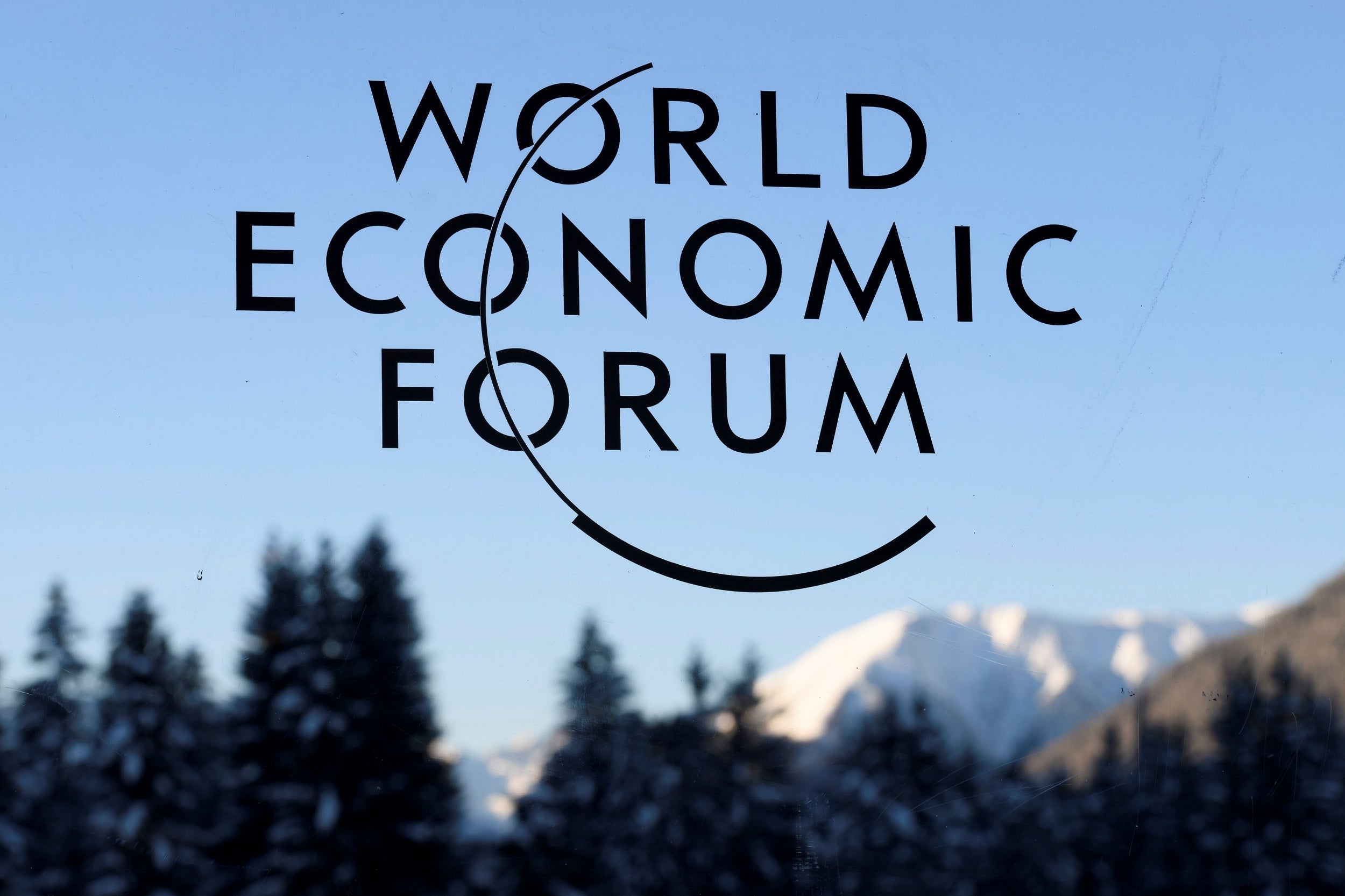Davos claims it will be carbon neutral this year – but do the numbers stack up?
Campaigners warn that the net-zero claim involves some ‘dodgy accounting’, writes Ben Chapman


The annual meeting of the World Economic Forum (WEF) in Davos has not garnered a reputation for being an environmentally friendly get-together, but with climate change shooting to the top of the agenda, this year’s event has chosen sustainability as its main theme.
It also promises to walk the walk by being carbon neutral. With hundreds of private jets carrying some of the planet’s most powerful people to the Alpine resort next week, however, is this a realistic aim?
The WEF says it has done everything it can to reduce its carbon footprint: its fleet of vehicles for ferrying guests around is 90 per cent electric, and there will be more local food and meat-free options. Even the venue itself has been reconfigured to use less carpet.
That still leaves a rather obvious problem. Being 2,000 metres up a mountain and 100 miles from a major airport does not lend itself to being accessible. The VIPs in attendance are unlikely to be hopping on the bus, so the planes will again be arriving in force, racking up quite an emissions bill for a “green” summit.
The WEF says it will offset these by investing in projects that prevent emissions elsewhere.
Last year, it offset some 35,000 tonnes of CO2 in an effort to make the event “zero emissions”.
That’s equivalent to the annual carbon footprint of 6,500 UK residents, which for an event that lasts five days is quite a lot.
This year, the WEF is primarily working with two projects to balance the books of its emissions: one that conserves rainforest in the Amazon and another that creates electricity from manure and organic waste on Swiss farms.
While these are valuable projects, campaigners say that offsetting in this way simply does not work.
“It’s dodgy accounting that allows the big polluters to keep on polluting,” says Rachel Kennerly, a climate campaigner at Friends of the Earth.
An important problem is that many offsetting schemes claim credit for emissions “cuts” that haven’t happened yet – such as by preventing deforestation.
The hypothetical carbon savings are often based on unrealistic assumptions and the outcomes of projects are generally not rigorously monitored, says Kennerly.
Some offsetting projects also lead to potentially damaging unintended consequences. For example, there have been cases of indigenous people being thrown off their land because it had become a commodity to be sold for carbon offsetting.
In the past, polluters have been able to claim offsetting of emissions by paying oil and gas producers in Nigeria not to burn off unwanted natural gas, even though the practice – known as flaring – is illegal anyway.
Schemes often assume an equivalence between releasing a tonne of carbon in one place and planting trees to eliminate the same amount somewhere else. But there is a significant time lag involved: it takes much less time to burn fuel than it does to plant and grow a tree. The climate crisis requires major reductions in emissions as a matter of urgency.
“All in all, it’s about looking good on paper without putting the work in,” says Kennerly.
More importantly, whether 100 private jets fly into Davos or 10,000, the associated emissions pale into insignificance when compared with the positive impact that the attendees could have on the climate.
Rarely are such a large number of powerful and influential people – hundreds of senior bankers and chief executives, dozens of heads of state – in one place, and never before has Davos been focused on climate change above all else.
Too often in the past, however, little has seemed to come out of this apparently promising setup.
In 2020, Davos has its most important chance yet to prove its critics wrong, to show that its reputation as a talking shop is undeserved, and to generate real change and momentum to tackle the climate crisis. Doing so would “offset” all of the event’s carbon emissions thousands of times over.
Join our commenting forum
Join thought-provoking conversations, follow other Independent readers and see their replies
Comments